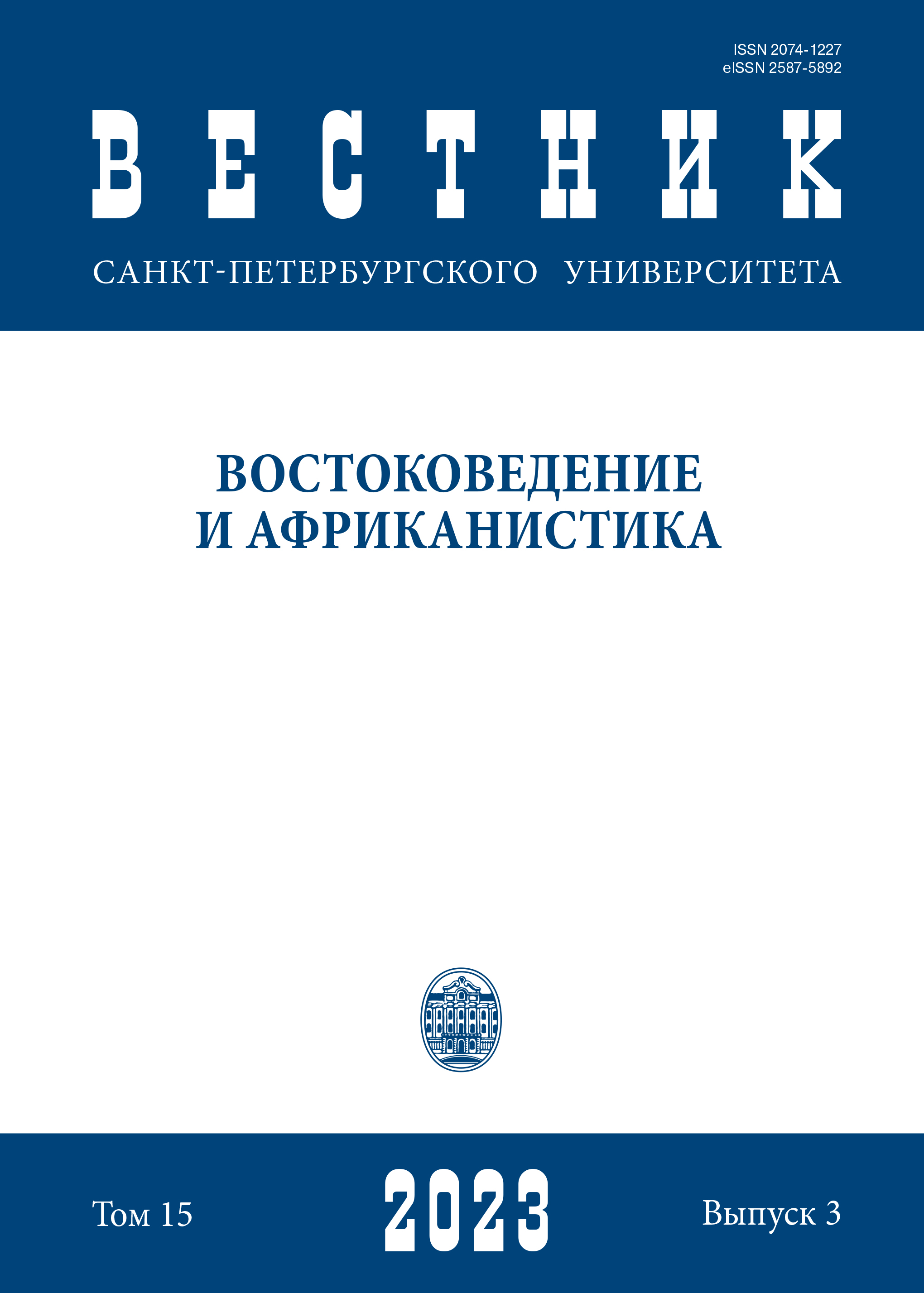The Peculiarities of Defining Culturally Specific Uzbek Names in Associative Dictionaries
DOI:
https://doi.org/10.21638/spbu13.2023.303Abstract
This article deals with the discretion of associative features of names of culturally specific units in the Uzbek language. Also, this article highlights the issue of their classification. The method of studying the associated experience of native Uzbek speakers (L1 users) with the names of cultural units revealed the peculiarities of the emergence of the names of cultural units in the Uzbek language, as well as their nominative expression in associative dictionaries. The names of cultural units in the Uzbek language are different according to different topics. They can be classified as names of national rituals, customs, and traditions, national food, national haberdashery names, names of national cloth, national musical instruments, national songs, national dances, national holidays, national architecture, architect devices (or material), national games, national jewelry, make-up units, local organizations names, etc. The range of the usage of these names is different in a literary language. In this article, a special attention is given to survey how such names are presented in the associative dictionaries. The results of the analysis of materials on associative experiences related to such names show that not
only linguistic factors, but extra-linguistic sources also can cause the associations. Specifically, the human factor is studied in the cognition of the names of culture units by Uzbek language native speakers. The issue of the comparison and contrast of other dictionaries with the Uzbek associative dictionary was compiled for the first time.
Keywords:
culturally specific vocabulary, associative dictionary, archaic words, Uzbek language
Downloads
References
Downloads
Published
How to Cite
Issue
Section
License
Articles of "Vestnik of Saint Petersburg University. Asian and African Studies" are open access distributed under the terms of the License Agreement with Saint Petersburg State University, which permits to the authors unrestricted distribution and self-archiving free of charge.





